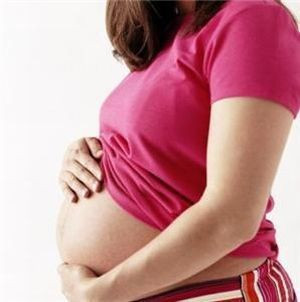Standing Too Much During Pregnancy Could Affect Fetal Growth
Study warns that jobs which require pregnant women to spend most of day on feet could lead to slower rate of fetal development.

Standing for long periods while pregnant could delay fetal growth, a study claims.
Researchers in Rotterdam investigated what effects physically demanding work and long hours could have on the development of a baby.
Previous research has indicated that long working hours can increase the risk of complications, including birth defects, premature birth and still birth.
Authors of the study, published in the journal Occupational and Environmental Medicine, assessed the fetal growth rates of 4,680 mothers throughout their pregnancies in the Netherlands between 2002 and 2006.
The women were interviewed about their work conditions halfway through their pregnancies. They were asked how demanding their job was physically, their shift patterns and how long they spent standing and walking.
The babies' development was analysed throughout the pregnancy and again at birth.
Around 38 percent of the women spent a long time on their feet, of which 45.5 percent had to walk for long periods. Just 6 percent had a job that involved heavy lifting, while 4 percent worked evening shifts.
The researchers found that women who spent a long time on their feet at work had babies whose heads were an average of 3 percent smaller at birth, implying a slower growth rate.
The women in the study worked in sales, childcare and teaching. Around half of them put in between 25 and 39 hours a week, while one in four worked more than 40 hours a week.
Those with the longer working weeks had smaller babies than those who worked 25 hours a week.
Interestingly, the results showed that physically demanding work and long working hours were not consistently associated with restrictions on overall size or birthweight, or with premature birth.
The authors concluded: "We believe that optimising the work environment is important, since participation of women in the reproductive age in the workforce continues to increase."
On the basis of the study, they suggested that women avoid extended periods of standing, shift and night work and physical exertion in the workplace during their pregnancies.
© Copyright IBTimes 2025. All rights reserved.





















